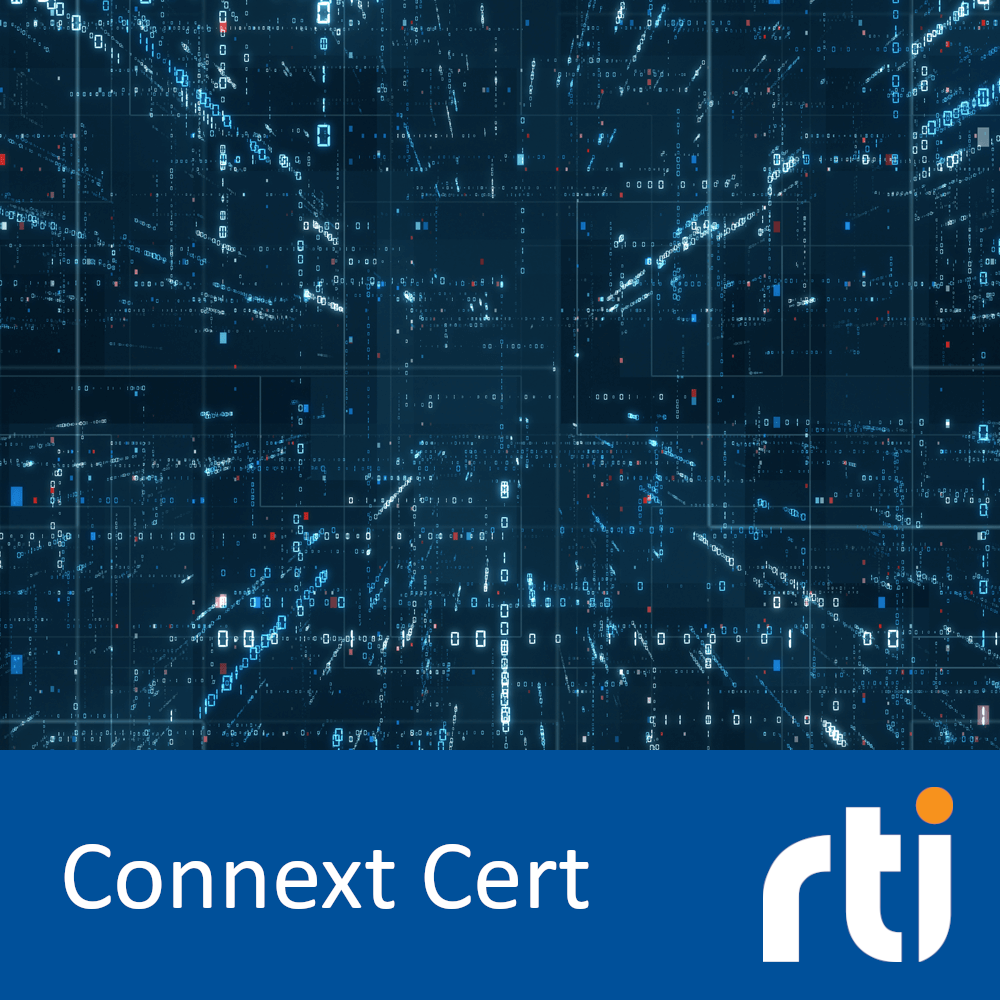RTI Connext Cert – Safety-Certifiable Connectivity Platform
Safety-Certifiable Connectivity Platform
The first safety-certifiable connectivity software for safety and mission-critical real-world systems. Connext DDS Cert complies with the most stringent certification requirements and is available with out-of-box, reusable certification evidence to streamline certification.
Features
Connext DDS Cert can save tens of thousands of lines of application software code and millions of dollars in associated integration and certification costs.
Powerful run-time libraries provide publish/subscribe communication APIs that simplify application logic, eliminating the need for custom networking code, as well as the need to generate accompanying certification artifacts. This greatly reduces the time, cost and risk of device and system-level certification and recertification upon updates.
Connext DDS Cert is the only off-the-shelf connectivity framework certifiable to Design Assurance Level (DAL) A, the highest level of the DO-178C standard.
Its reusable evidence also provides a certification baseline for other industry-specific functional safety standards including IEC 61508 (industrial), IEC 60601/IEC 62304 (medical devices) and ISO 26262 (automotive).
Connext DDS Cert uses an innovative, completely decentralised architecture. Applications directly exchange data in a true peer-to-peer manner – no servers, message brokers or daemon processes act as bottlenecks or single points of failure. As a result, Connext DDS Cert delivers the consistent low-latency, high throughput and scalability required for big data in motion.
RTI Connext DDS Cert has no built-in dependency on operating system services.
Applications can be implemented on platforms with minimal operating system capabilities or no operating system at all. Processor support ranges from 16-bit microcontrollers with 32-bit integer support to multicore Intel and PowerPC CPUs. Leading enterprise operating systems, including Linux and Windows, are supported as well to ease application development and testing.



